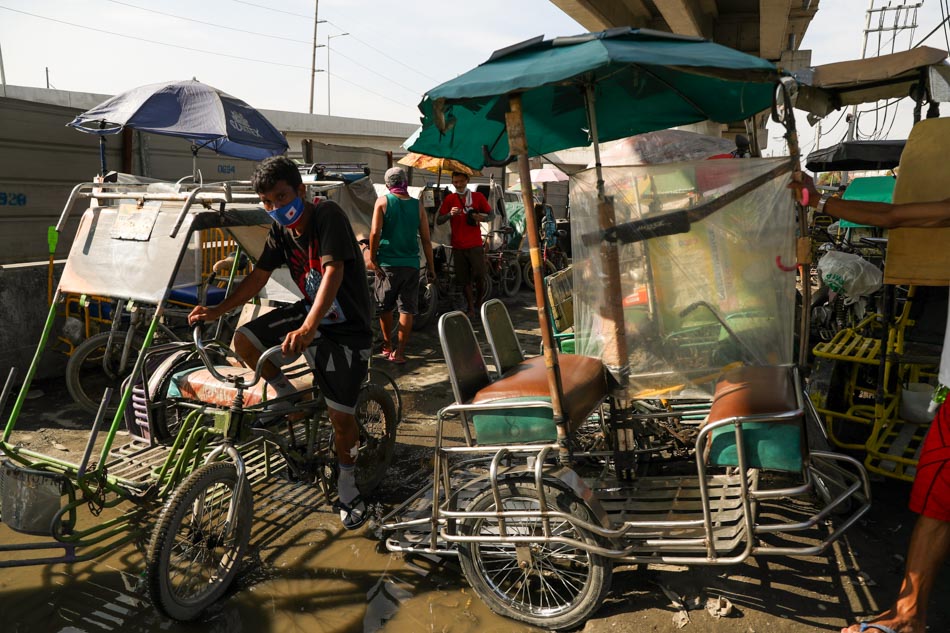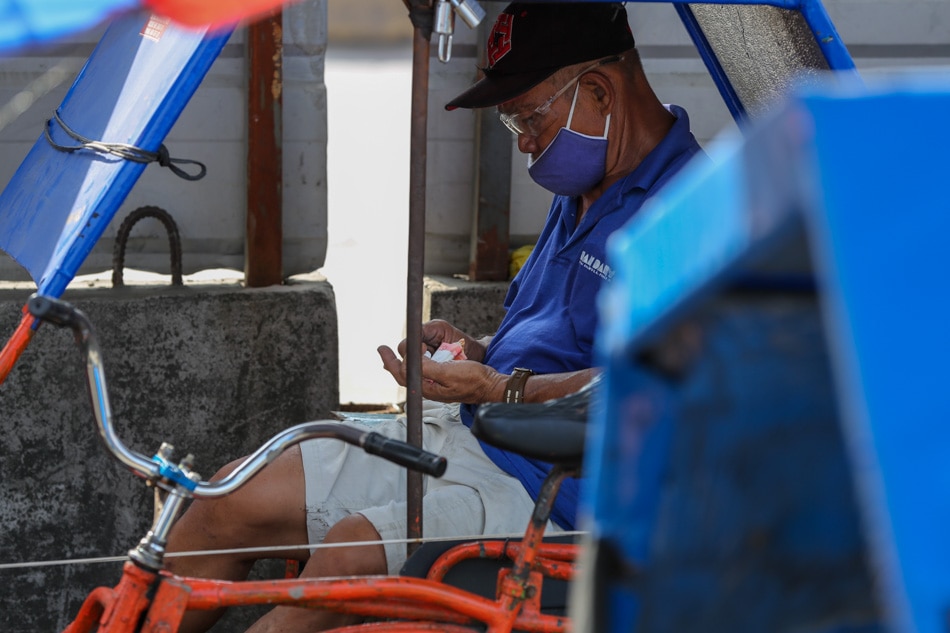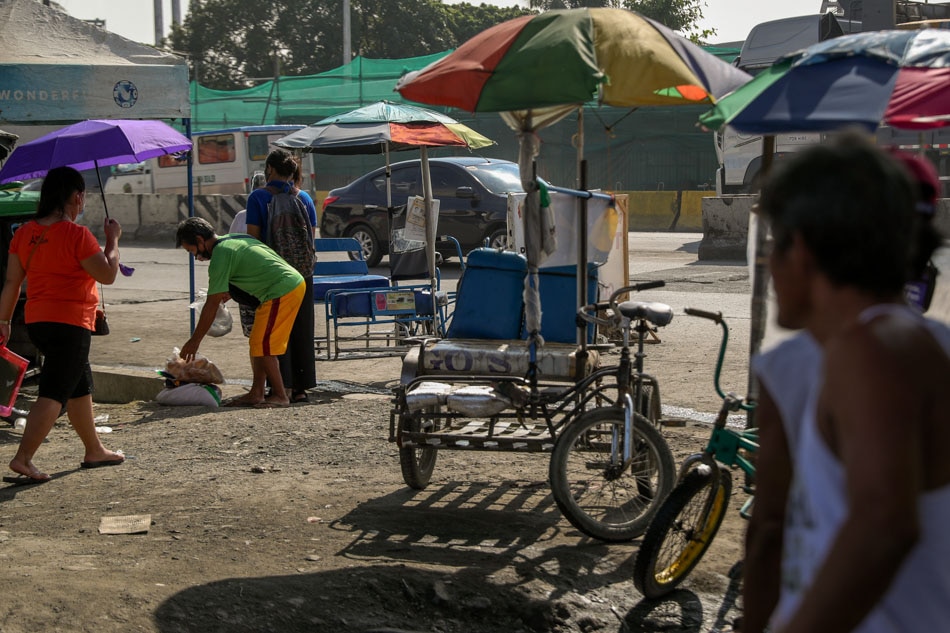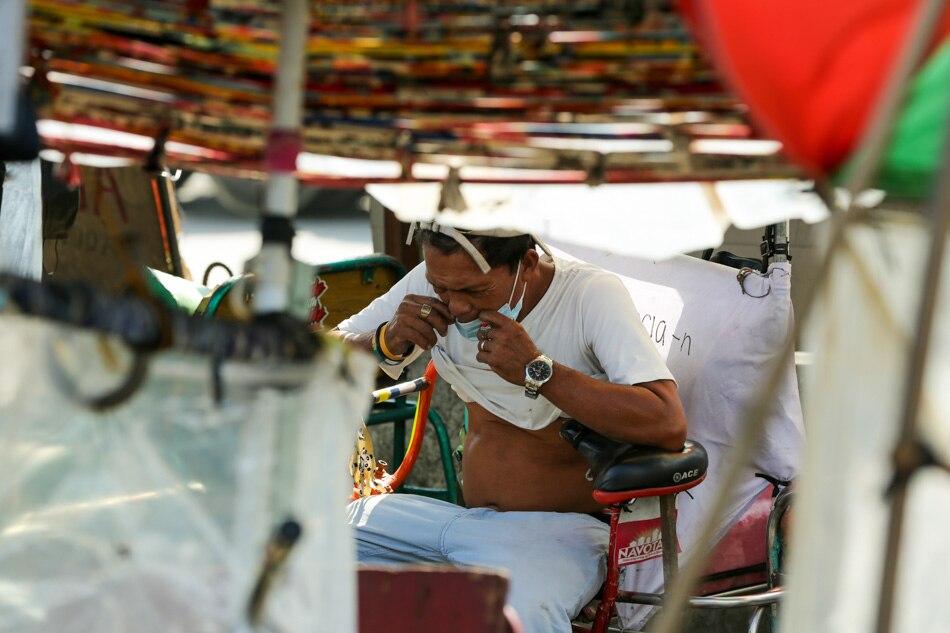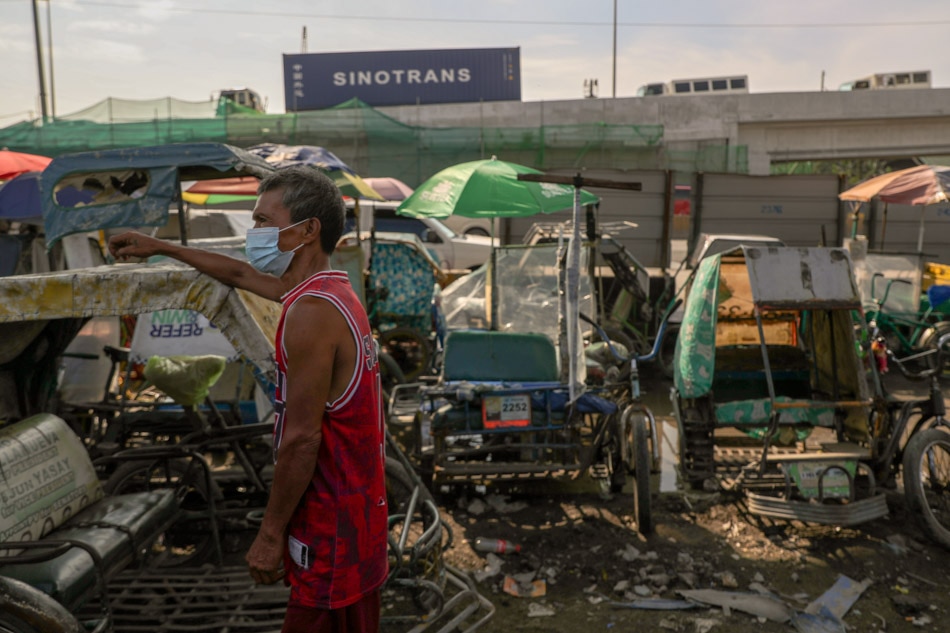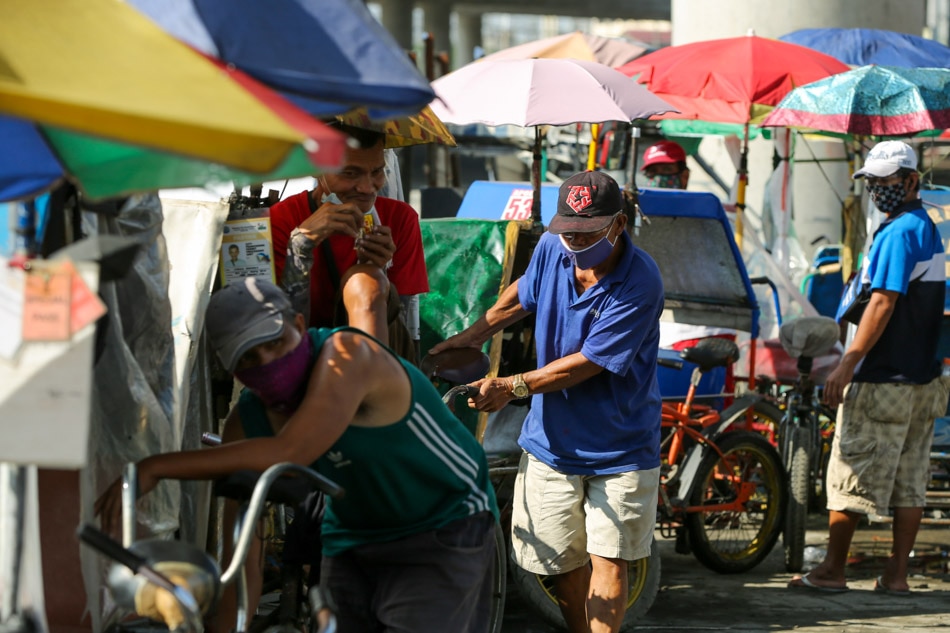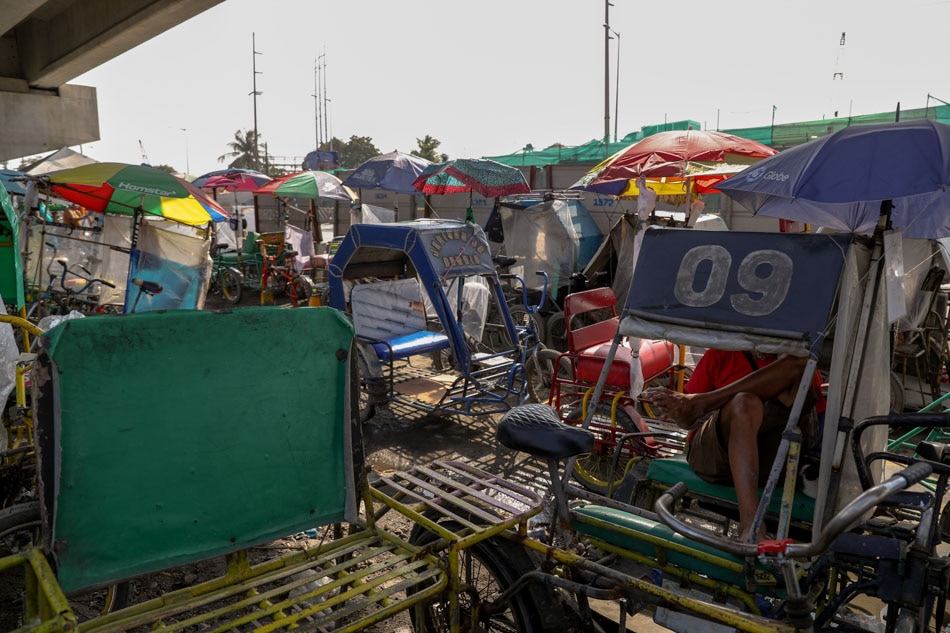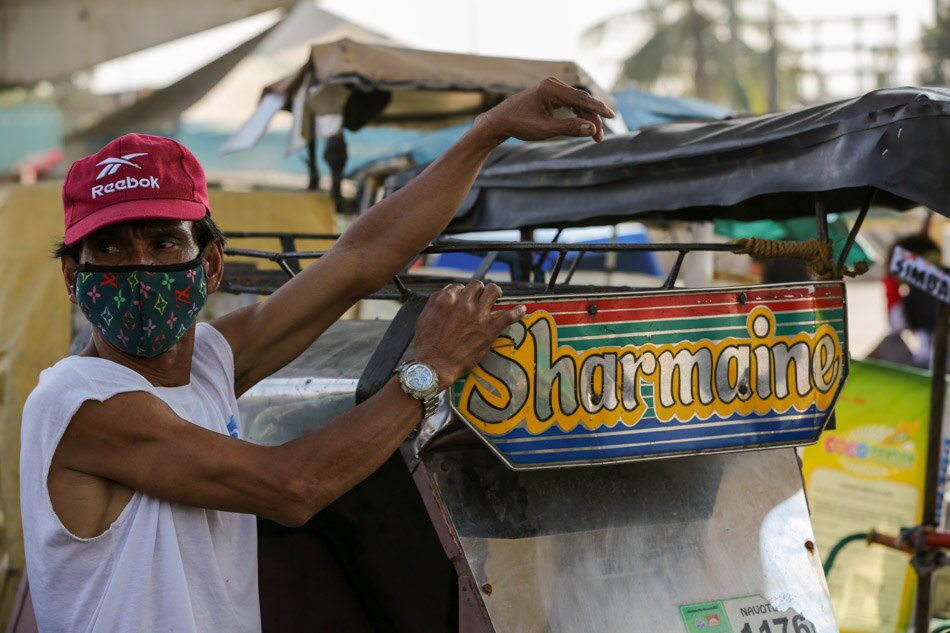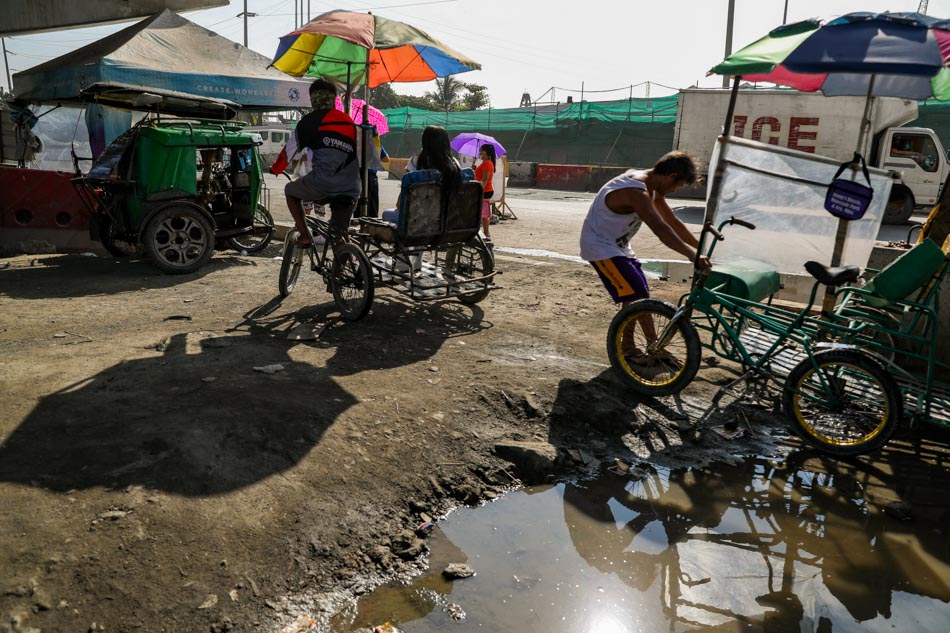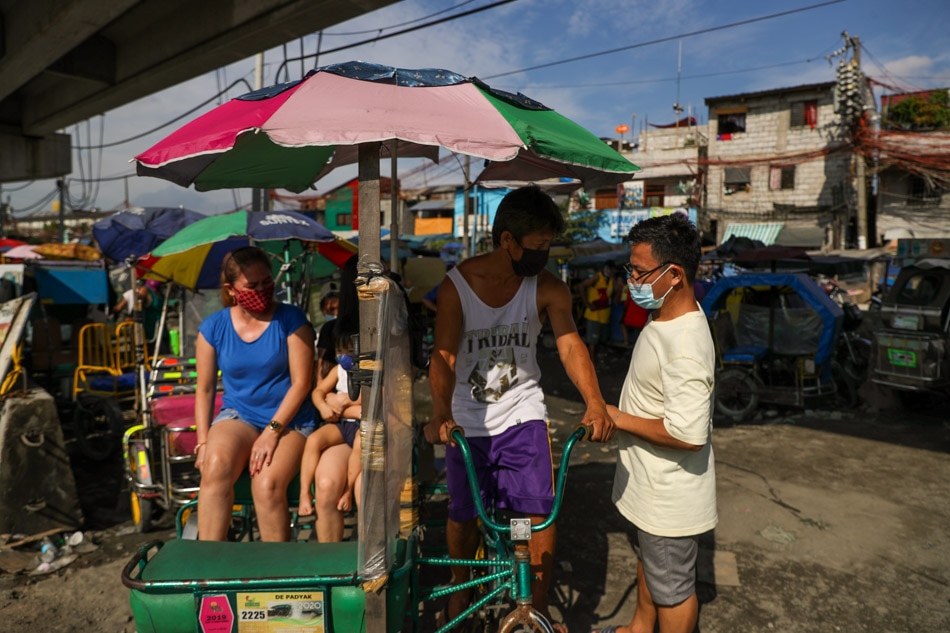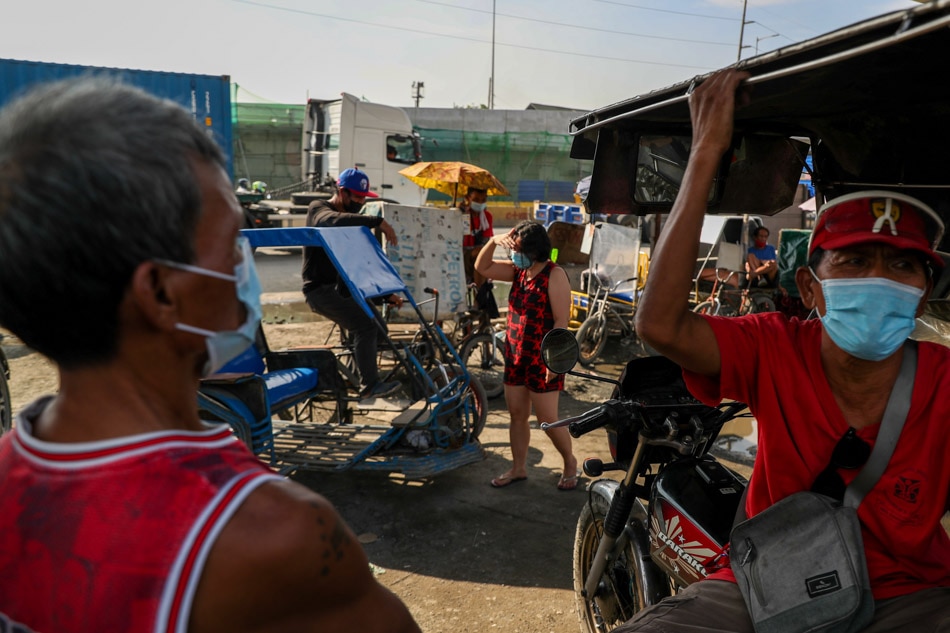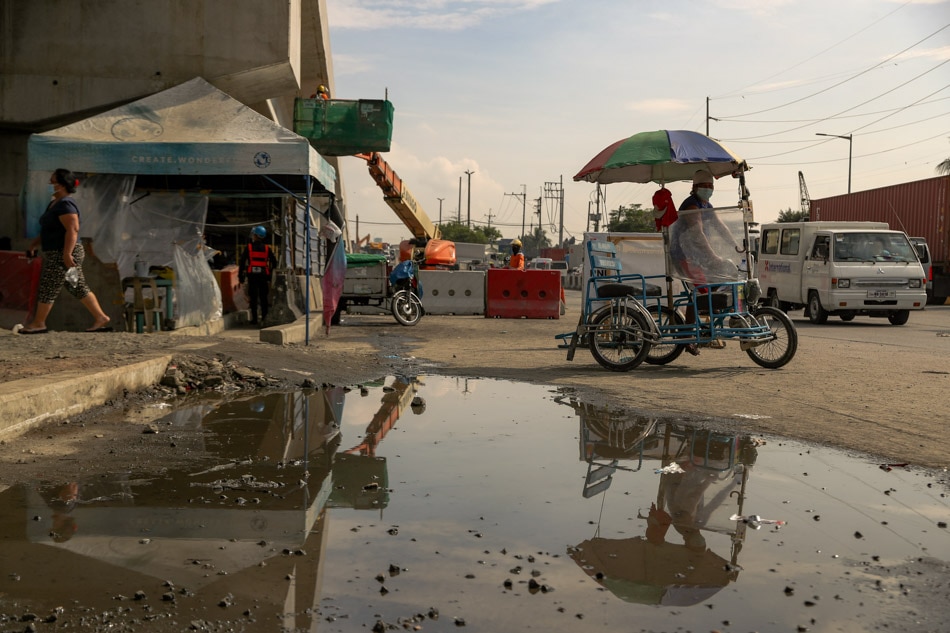Pedicab drivers feel pinch of pandemic lockdown, uncertain future | ABS-CBN

Welcome, Kapamilya! We use cookies to improve your browsing experience. Continuing to use this site means you agree to our use of cookies. Tell me more!
News
Pedicab drivers feel pinch of pandemic lockdown, uncertain future
Pedicab drivers feel pinch of pandemic lockdown, uncertain future
ABS-CBN News
Published Jan 23, 2021 05:22 PM PHT
|
Updated Jan 25, 2021 10:52 AM PHT
Sitting inside his pedicab while parked at a makeshift terminal under a flyover still under construction, 70-year-old Lamberto Rosiana looks at the few bills and coins in his hand— his earnings so far. The money amounts to a meager P150. This is just enough to buy some 3 kilos of rice and one dish to feed his family.
Sitting inside his pedicab while parked at a makeshift terminal under a flyover still under construction, 70-year-old Lamberto Rosiana looks at the few bills and coins in his hand— his earnings so far. The money amounts to a meager P150. This is just enough to buy some 3 kilos of rice and one dish to feed his family.
“Dire-diretso ang pasada nito mula umaga hanggang ngayon,” he says as the sun set.
“Dire-diretso ang pasada nito mula umaga hanggang ngayon,” he says as the sun set.
(Our trips continue from the morning until now.)
(Our trips continue from the morning until now.)
The flyover provides protection from the heat but not from the dust kicked up by vehicles a few meters away. It's a typical Friday afternoon for pedicab drivers along R-10 in Navotas since COVID-19 lockdowns started last year.
The flyover provides protection from the heat but not from the dust kicked up by vehicles a few meters away. It's a typical Friday afternoon for pedicab drivers along R-10 in Navotas since COVID-19 lockdowns started last year.
ADVERTISEMENT
Rosiana is one of around 40 pedicab drivers in the terminal waiting their turn for a passenger. Passengers come few and far in between because of movement restrictions. At least, not as many and not as much as they used to.
Rosiana is one of around 40 pedicab drivers in the terminal waiting their turn for a passenger. Passengers come few and far in between because of movement restrictions. At least, not as many and not as much as they used to.
“‘Pag umiikot ang gulong, may pera. 'Pag naka-tengga, nganga,” one of them says, eliciting a round of laughter from his fellow drivers, appreciative of the impromptu rhyme.
“‘Pag umiikot ang gulong, may pera. 'Pag naka-tengga, nganga,” one of them says, eliciting a round of laughter from his fellow drivers, appreciative of the impromptu rhyme.
(If the wheels are turning, we get cash. If we're stalled, nothing.)
(If the wheels are turning, we get cash. If we're stalled, nothing.)
With nothing much else to do, the drivers trade stories and jokes. Anything to break the monotony of waiting.
With nothing much else to do, the drivers trade stories and jokes. Anything to break the monotony of waiting.
“Ano libangan sa pila? 'Pag may pangangailangan isa't isa- tulungan.
'Pag walang pasahero, kwentuhan, umpukan na lang. Tawanan.”
“Ano libangan sa pila? 'Pag may pangangailangan isa't isa- tulungan.
'Pag walang pasahero, kwentuhan, umpukan na lang. Tawanan.”
(What do we do to pass the time? When we need each other, we help each other out. When there are no passengers, we share stories. Laughter.)
(What do we do to pass the time? When we need each other, we help each other out. When there are no passengers, we share stories. Laughter.)
While they are all light-hearted, some of the stories are not, even if they could be heard laughing. They all remember what it was like before the lockdowns.
While they are all light-hearted, some of the stories are not, even if they could be heard laughing. They all remember what it was like before the lockdowns.
“Sagana nung wala pa ang pandemic. Hangga’t kaya ng tuhod kikita ka. Ngayon, nilulumot na ang aking tuhod, at kinakalawang na mga kadena,” one of them quips, met by another round of laughter.
“Sagana nung wala pa ang pandemic. Hangga’t kaya ng tuhod kikita ka. Ngayon, nilulumot na ang aking tuhod, at kinakalawang na mga kadena,” one of them quips, met by another round of laughter.
(We had a lot before the pandemic. As long as our knees could take it, we make money. Now, my knees are stagnant, my chains are rusting.)
(We had a lot before the pandemic. As long as our knees could take it, we make money. Now, my knees are stagnant, my chains are rusting.)
Every now and then, one of them would wave to a potential passenger, urging passersby to take a ride which costs between P20 to P75.
Every now and then, one of them would wave to a potential passenger, urging passersby to take a ride which costs between P20 to P75.
Before the lockdowns, the drivers say they could earn as much as P1,000 a day, especially when students would use their services to get to school. Nowadays, they would be happy to bring home P200. Sometimes they take home as little as P50.
Before the lockdowns, the drivers say they could earn as much as P1,000 a day, especially when students would use their services to get to school. Nowadays, they would be happy to bring home P200. Sometimes they take home as little as P50.
But the pandemic isn’t the only thing on their minds. They know that the impending completion of the flyover means they would have to set up another terminal soon, if not another way to make a living entirely. It's either they motorize their pedicabs or provide a different kind of transportation service.
But the pandemic isn’t the only thing on their minds. They know that the impending completion of the flyover means they would have to set up another terminal soon, if not another way to make a living entirely. It's either they motorize their pedicabs or provide a different kind of transportation service.
Still they are not bothered, thankful for the chance to ply their route even temporarily. They say they know that the service they provide won't last forever in the name of progress. It won’t be long, they say, before they would have to abandon their trade and look for other but still informal work.
Still they are not bothered, thankful for the chance to ply their route even temporarily. They say they know that the service they provide won't last forever in the name of progress. It won’t be long, they say, before they would have to abandon their trade and look for other but still informal work.
“Tanggap namin ang pagbabago.”
“Tanggap namin ang pagbabago.”
(We accept change.)
(We accept change.)
ADVERTISEMENT
ADVERTISEMENT

